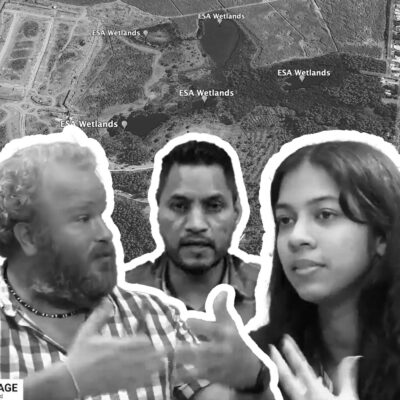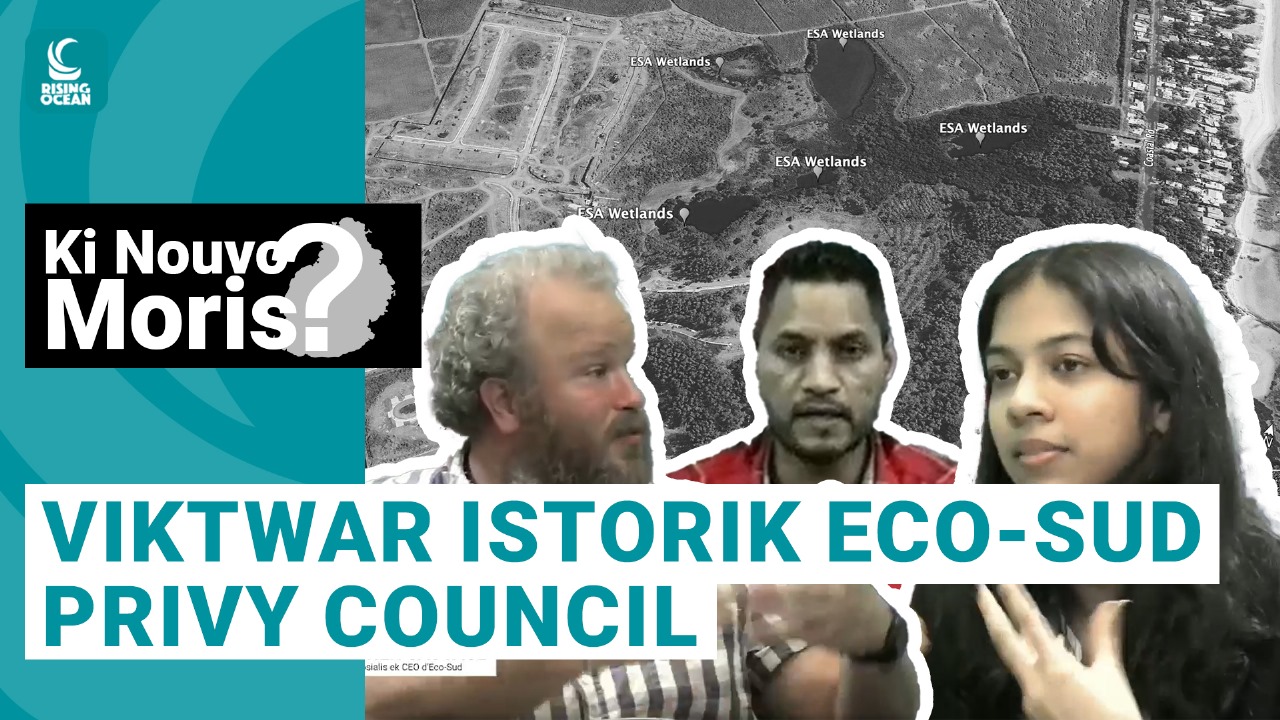On July 4, 2024, Eco-Sud won a historic victory for the protection of the environment in Mauritius. Indeed, the Privy Council recognized the legitimacy of Eco-Sud to defend the environment because the NGO had the qualities required to challenge the decision of the Minister of the Environment, who had issued an Environmental Impact Assessment (EIA) permit to Pointe d’Esny Lakeside Company Limited. This judgment confirms the decision of the Supreme Court of Mauritius, which gave a less strict and broader definition of the locus standi of associations under the Environment Protection Act 2002. To elaborate more on this subject, the Ki Nouvo Moris set had as guests Sébastien Sauvage, an eco-socialist activist and CEO of the NGO Eco-Sud, and Sanjana Bhuckory, a lawyer by profession.
Why is this judgment historic?
For Sébastien Sauvage, this judgment is historic for several reasons. One of the reasons is that the Supreme Court of Mauritius has nothing to envy about the highest court of the English Court. Indeed, the Privy Council confirmed the Supreme Court’s judgment by legitimizing Eco-Sud’s action.
“It is important to recognize that the Mauritian judicial institution has been able to take measures for the environmental emergency in which we find ourselves.”
Today we are in an environmental emergency because biodiversity is disappearing, and it is human activity that has led to this. The capitalistic model of development based on the exploitation of nature affects the planetary balance. For Sébastien Sauvage, the fauna and flora are disappearing not because they are sick but, above all, because they are not given the space to live.
“We find nature a resource to be exploited.”
Another point addressed by Sébastien Sauvage is the lack of will among political and economic actors. The land industry has been gaining ground over the last 10 years, and this is a major contributor to the exploitation of ecologically sensitive areas such as wetlands, mountains, and so on. The different labels, such as smart cities and other gated communities, will only accentuate social crises, and communities in vulnerable situations will be more affected.
“It is important that everyone gets moving for this nature and the people.”
The impact of this judgment in Mauritius and around the world.
For the CEO of Eco-Sud, this judgment represents a strength because it will allow Mauritians, those who love nature, to get moving for its protection.
“Some say that this judgment will allow abuses at the level of the courts by citizens or associations that want to protect nature. What is abuse is these real estate developers who build hotels directly on the wetlands.”
From a legal point of view, Sanjana Bhuckory points out that the locus standi test for environmental cases will be examined in a broader way, even though the law offers a more limited application. It is true that this decision of the Privy Council will free the hands of the environmental court and empower it. It is important that people come and appeal to the environmental court when they feel that a decision of the court will affect nature and their surroundings.
The Privy Council’s ruling is a very big step forward on the legal front, but there is still a lot to do. Recognizing the legitimacy of associations and each person’s responsibility to protect nature is a very big step. Sébastien Sauvage brings out that we need to review our approach to this nature that offers us a lot daily. Including the law of nature in the Mauritian Constitution and recognizing that the environment is crucial is the way to go.
Section 2 of the EPA 2002 provides for environmental stewardship. It is declared that every person in Mauritius shall use his best endeavors to preserve and enhance the quality of life by caring responsibly for the natural environment of Mauritius.
https://www.jcpc.uk/cases/docs/jcpc-2023-0070-judgment.pdf
Watch the debate here:


